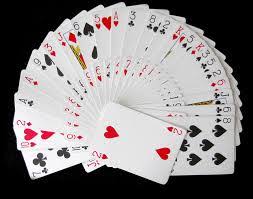How Much Cards In Rummy, Rummy is a popular card game with various versions played around the world. One fundamental aspect of understanding and playing rummy is knowing how many cards are used in the game. The number of cards in rummy can vary depending on the specific variant of the game being played. This article will explore the typical deck sizes for standard rummy and its popular variations.
Standard Deck in Rummy
In a standard game of rummy, the deck used is usually composed of 52 cards. The deck consists of:
- 4 Suits: Hearts, Diamonds, Clubs, and Spades.
- 13 Ranks: Ace, 2 through 10, Jack, Queen, and King.
Typical Rummy Deck Setup
- Single Deck Rummy:
- Number of Cards: 52 cards (one deck).
- Common Variants: Indian Rummy (13-card version), Gin Rummy.
- Gameplay: In single deck rummy, players typically receive 10 to 13 cards each, depending on the variant. The remaining cards form the draw pile, and one card is placed face-up to start the discard pile.
- Double Deck Rummy:
- Number of Cards: 104 cards (two decks shuffled together).
- Common Variants: Indian Rummy (21-card version), Kalooki.
- Gameplay: In double deck rummy, each player usually receives 13 to 21 cards. The draw pile is larger, and more combinations can be formed due to the increased number of cards.
Popular Rummy Variants and Their Deck Sizes
- Indian Rummy:
- Deck Size: Typically uses two decks of 52 cards each (104 cards in total).
- Cards Dealt: Players are usually dealt 13 cards each. In the 21-card version, players receive 21 cards each.
- Gameplay: Players aim to form valid sets and sequences using the larger deck size, which adds complexity to the game.
- Gin Rummy:
- Deck Size: Uses a single deck of 52 cards.
- Cards Dealt: Each player is dealt 10 cards.
- Gameplay: The goal is to form melds (sets or runs) and “knock” to end the round. The single deck limits the number of possible combinations compared to multi-deck variants.
- Kalooki (or Kaluki):
- Deck Size: Typically uses two decks of 52 cards plus jokers (total of 104 cards + jokers).
- Cards Dealt: Players are dealt 13 cards each.
- Gameplay: The addition of jokers as wild cards increases the complexity and strategy of the game.
- Oklahoma Rummy:
- Deck Size: Uses a single deck of 52 cards.
- Cards Dealt: Each player is dealt 7 to 10 cards, depending on the number of players.
- Gameplay: Similar to Gin Rummy, but with specific rules regarding the first meld and subsequent melds.
Understanding Jokers in Rummy
In many rummy variants, jokers are included as wild cards:
- Jokers in Standard Decks: Typically, a deck of 52 cards includes two joker cards, which are not used in the basic deck but may be added in some rummy games.
- Jokers in Multi-Deck Games: In double deck rummy games, jokers may also be included, bringing additional strategic elements to the game.
Conclusion
The number of cards in rummy can vary significantly based on the specific variant being played. Standard rummy games typically use a single deck of 52 cards, while variations like Indian Rummy and Kalooki use multiple decks and jokers to enhance gameplay. Understanding the deck size and card distribution is crucial for mastering the rules and strategies of each rummy variant. Whether you’re playing a classic version with a single deck or a more complex variant with multiple decks and jokers, knowing the deck composition will help you make informed decisions and improve your overall game experience.




